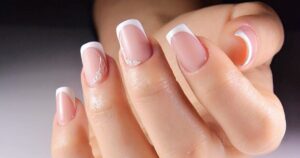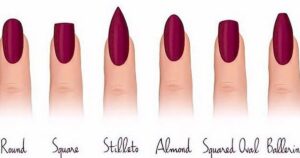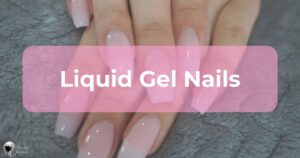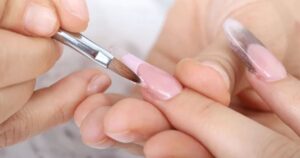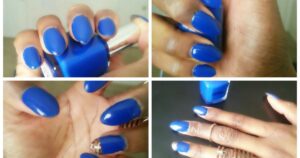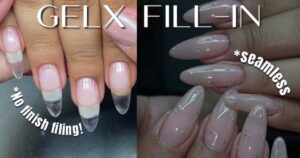Are you struggling to understand what your hair needs? Don’t worry, you’re not alone. In the world of hair care, determining whether your hair needs protein or moisture can be a daunting task. But fear not! We’re here to guide you through the process. In this article, we’ll explore the telltale signs of protein deficiency and moisture imbalance in your hair. By the end, you’ll be equipped with the knowledge to give your hair the nourishment it craves. So let’s dive in and unveil the secrets to luscious locks!
Key Takeaways
- Signs of protein deficiency in hair include multiple split ends, weak and prone to breakage, damaged cuticle, and it is caused by external factors and can be strengthened by protein-rich products.
- Indications of moisture deficiency in hair include dryness and brittleness, dull and frizzy appearance, lack of elasticity, rough and coarse texture, and it tangles and knots easily.
- To determine if your hair needs protein, assess its appearance and texture, look for excessive breakage or lack of strength, check if it is weak, brittle, or easily breaks, and consider poor moisture retention and limpness.
- To determine if your hair needs moisture, evaluate its overall condition and appearance, look for dryness, frizziness, lack of elasticity, brittleness, excessive frizz, and scalp dryness and itchiness.
Signs of Protein Deficiency in Hair
One common sign of protein deficiency in hair is the presence of multiple split ends. Split ends occur when the protective outer layer of the hair shaft, known as the cuticle, becomes damaged and begins to fray. This damage is often a result of external factors such as heat styling, chemical treatments, or environmental stressors. However, when the hair lacks sufficient protein, it becomes weaker and more prone to breakage, leading to an increased occurrence of split ends. Protein is a vital component of hair structure, as it helps to strengthen and repair the hair shaft. In order to address this issue, it is important to incorporate protein-rich products into your hair care routine, such as deep conditioning treatments or protein-based hair masks. By nourishing the hair with the necessary protein, you can help to reduce split ends and promote healthier, stronger hair.
Indications of Moisture Deficiency in Hair
The presence of dryness and brittleness in the hair is an indication of moisture deficiency. When your hair lacks moisture, it can become dull, frizzy, and prone to breakage. Here are some common signs that your hair is in need of moisture:
- Split ends: Dry hair tends to have split ends, which occur when the hair shaft becomes weak and brittle.
- Lack of elasticity: Moisture-deprived hair lacks elasticity and is unable to stretch without breaking.
- Rough texture: If your hair feels rough and coarse to the touch, it is a clear sign of moisture deficiency.
- Tangles and knots: Dry hair is more prone to tangling and forming knots, making it difficult to manage and style.
To restore moisture and improve the health of your hair, it is important to incorporate hydrating hair products and deep conditioning treatments into your routine.
How to Determine if Your Hair Needs Protein
To effectively determine whether your hair requires protein, you must carefully assess its appearance and texture, as well as analyze any issues such as excessive breakage or lack of strength. Protein is essential for maintaining the structure and strength of your hair. If your hair feels weak, brittle, or easily breaks, it may be a sign that it lacks protein. Additionally, if you notice that your hair is not retaining moisture well, it could indicate a protein deficiency. Another indication is if your hair feels limp and lacks volume. These are all signs that your hair may benefit from a protein treatment to restore its strength and health. However, it is important to note that protein treatments should be used sparingly, as too much protein can lead to stiffness and breakage. In the next section, we will discuss how to determine if your hair needs moisture.
How to Determine if Your Hair Needs Moisture
In order to accurately assess whether your hair requires moisture, it is crucial to carefully evaluate its overall condition and appearance, as well as consider any issues such as dryness, frizziness, or lack of elasticity. Here are some key indicators to help determine if your hair needs moisture:
- Brittle and dry texture: If your hair feels rough and lacks luster, it is likely in need of moisture.
- Excessive frizz: If your hair tends to be frizzy and unmanageable, it may be a sign that it lacks moisture.
- Lack of elasticity: When your hair loses its ability to stretch and bounce back, it indicates a moisture deficiency.
- Scalp dryness: If your scalp feels dry and itchy, it can indicate that your hair is lacking moisture.
Treating Protein Imbalances in Your Hair
Effectively addressing protein imbalances in your hair is essential for maintaining its strength, health, and overall appearance. When your hair lacks protein, it can become weak, brittle, and prone to breakage. Treating protein imbalances involves replenishing the protein levels in your hair to restore its vitality. One way to do this is by incorporating protein-rich products into your hair care routine. Look for shampoos, conditioners, and treatments that contain ingredients like keratin, collagen, or hydrolyzed proteins. These ingredients can help repair and strengthen your hair strands from within. Additionally, consider using protein treatments or masks once or twice a month to give your hair an extra boost of protein. However, it is important to strike a balance as too much protein can make your hair stiff and prone to breakage. Consulting with a professional hair stylist can help you determine the right amount of protein your hair needs and the best products to use. By addressing protein imbalances, you can promote healthier, stronger, and more resilient hair.
Treating Moisture Loss in Your Hair
When your hair experiences moisture loss, it is important to identify the underlying causes and address them appropriately. Dry and brittle hair can be a result of various factors, such as environmental conditions, heat styling, chemical treatments, and improper hair care routine. To effectively treat moisture loss in your hair, consider the following:
- Deep conditioning treatments: Regularly use deep conditioning masks or treatments to replenish moisture and nourish your hair.
- Hydrating hair products: Look for shampoos, conditioners, and styling products that are specifically formulated to hydrate and moisturize the hair.
- Avoid heat styling: Minimize the use of heat styling tools, as excessive heat can strip away moisture from your hair.
- Protective hairstyles: Opt for styles that protect your hair and minimize moisture loss, such as braids or buns.
FAQ’s
Can Hair Products Alone Provide Enough Protein and Moisture for My Hair?
Hair products alone cannot provide enough protein and moisture for your hair. It is essential to have a balanced diet, proper hair care routine, and use products specifically formulated to address your hair’s protein and moisture needs.
Are There Any Specific Hair Types That Are More Prone to Protein Deficiencies?
Certain hair types, such as those with high porosity or damaged hair, are more prone to protein deficiencies. Understanding your hair type and its specific needs can help determine whether protein or moisture is necessary for optimal hair health.
Can Excessive Use of Heat Styling Tools Cause Protein or Moisture Imbalances in Hair?
Excessive use of heat styling tools can indeed cause protein or moisture imbalances in hair. The high temperatures can strip the hair of its natural oils and weaken the protein structure, leading to dryness, breakage, and overall damage.
How Long Does It Typically Take to See Improvements in Hair After Treating Protein or Moisture Imbalances?
Improvements in hair after treating protein or moisture imbalances can vary depending on the individual’s hair type, condition, and the treatment used. It is recommended to consult a professional for personalized advice.
Can Diet Play a Role in Maintaining a Proper Protein and Moisture Balance in Hair?
Diet can indeed play a crucial role in maintaining a proper protein and moisture balance in hair. The nutrients we consume, such as protein, vitamins, and minerals, have a direct impact on the health and appearance of our hair.
Conclusion
In conclusion, understanding the signs of protein and moisture deficiencies in your hair is crucial for maintaining its health and vitality. By identifying the specific needs of your hair, you can take appropriate measures to treat protein imbalances or moisture loss. Whether it’s incorporating protein-based treatments or deep conditioning methods, addressing these deficiencies will help restore and nourish your hair, keeping it strong and beautiful. Remember, your hair deserves the best care possible.



